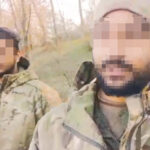600-700 Sudanese who came for treatment to Delhi, can’t return due to civil war in African nation
In a dimly lit corner of his small flat in Delhi, 23-year-old Fahad Mubarak Ali, a Sudanese national, can barely complete evening prayers on his own. In August last year, Mr. Ali was shot in the back of his head, as he took part in street protests in Khartoum. He travelled to India for medical treatment when civil war broke out between the Sudanese Armed Forces (SAF) and paramilitary Rapid Support Forces (RSF) on April 14, and now can’t return. Stuck between both countries, Mr. Ali is also trapped inside his body – his speech is slurred, his body paralysed from his injuries. His father Mubarak Ali, who accompanied him here, can no longer pay for doctor visits, and has discontinued his physiotherapy, as their funds have run out, and their Indian visas will expire soon too.
Mr. Ali and his family are among an estimated 600-700 Sudanese nationals, who travelled to India before the civil war broke out, mostly for medical treatment, and now have no way of returning. With the airport closed, and violence in the streets, it is impossible to find a safe route back to Khartoum. Banks have shut down and they have no access to their funds. According to the United Nations, the conflict in Sudan has forced nearly four million people out of their homes, with nearly a million seeking refuge in neighbouring states of Egypt, Libya, Chad, and Ethiopia. For those stranded in India, the uncertainty is growing, and they are turning their focus from their medical problems to simply surviving, applying for visa extensions from the Ministry of External Affairs (MEA) and refugee status from the UN High Commission for Refugees (UNHCR) office.
“We are exploring various options for their stay while they are here as well as for the repatriation. We are in touch with the Sudanese embassy in Delhi in this regard and of course whatever assistance we could do, we will certainly try to extend that,” said MEA spokesperson Arindam Bagchi, in response to a question from The Hindu on Friday.
Sudanese journalist Raga Nimir (39) is among those who have applied for refugee status with UNHCR, along with her husband Khalid (41) and two children Maaza (14) and Ibrahim (10), in India. UNHCR says their application is under process. While Ms. Raga’s newspaper in Sudan has shut down, Mr. Khalid has lost his job as a public relations executive back home, and Ms. Raga now spends her time working as a coordinator between Sudanese families stuck in Delhi and the Sudan Embassy. The couple had travelled with their children for two surgeries to repair Ibrahim’s deformed left hand at South Delhi’s Rainbow Hospital. While they completed the first surgery successfully and paid a medical bill of about ₹5.4 lakh, they are using the funds they set aside for the second surgery for living expenses now, Ms. Raga tells The Hindu, dejected that her son may never get the second surgery he needs.
Some like Omar Hamid (35) and his son Hazim Omar (15), who lies in a comatose state in a small tenement, have an even more tenuous existence here. Hazim, a brain cancer survivor now weighs just 16 kg, and is fed baby food through a tube attached to his stomach. The Sudanese embassy is helping Mr. Hamid with the rent, but he has little money left, after spending for medicines and special care for his son. “Most days we live by the kindness of our neighbours who drop by with food,” he says. His wife Malak Musa Ali and other children have fled to Chad where they have sought asylum with The United Nations High Commissioner for Refugees (UNHCR).
Some Sudanese nationals in India are also recovering from the trauma of their journey from Sudan, and can’t think of trying to return. Abdul Majid (34) travelled 230 km from his home in the Sudanese city of Gezira to the capital Khartoum, dodging bullets and checkposts, to bring his sister Raniya (40) to India for the last part of her Invitro-fertilization (IVF) pregnancy treatment. When the civil war broke out, Mr. Majid was unprepared for what would follow.
“I was stopped four times by RSF checkposts, twice by the army and then again by RSF during my journey. The mercenaries took away my cell phones, jewellery and cash. The next day, I borrowed some money from a relative, which I hid in my shoes in case I was stopped again. There was fighting everywhere and bodies riddled with bullets lay on the streets,” Mr. Majid says, describing his ordeal. Mr. Majid’s efforts for his sister paid off – after the IVF treatment, Raniya is expecting a child. His thoughts, however are with his one-month-old baby and his wife Iman, who are stuck in Gezira, with no knowledge of when they will be reunited in the future.
Sudanese seek help as conflicts back home intensify
600-700 Sudanese who came for treatment to Delhi, can’t return due to civil war in African nation
In a dimly lit corner of his small flat in Delhi, 23-year-old Fahad Mubarak Ali, a Sudanese national, can barely complete evening prayers on his own. In August last year, Mr. Ali was shot in the back of his head, as he took part in street protests in Khartoum. He travelled to India for medical treatment when civil war broke out between the Sudanese Armed Forces (SAF) and paramilitary Rapid Support Forces (RSF) on April 14, and now can’t return. Stuck between both countries, Mr. Ali is also trapped inside his body – his speech is slurred, his body paralysed from his injuries. His father Mubarak Ali, who accompanied him here, can no longer pay for doctor visits, and has discontinued his physiotherapy, as their funds have run out, and their Indian visas will expire soon too.
Mr. Ali and his family are among an estimated 600-700 Sudanese nationals, who travelled to India before the civil war broke out, mostly for medical treatment, and now have no way of returning. With the airport closed, and violence in the streets, it is impossible to find a safe route back to Khartoum. Banks have shut down and they have no access to their funds. According to the United Nations, the conflict in Sudan has forced nearly four million people out of their homes, with nearly a million seeking refuge in neighbouring states of Egypt, Libya, Chad, and Ethiopia. For those stranded in India, the uncertainty is growing, and they are turning their focus from their medical problems to simply surviving, applying for visa extensions from the Ministry of External Affairs (MEA) and refugee status from the UN High Commission for Refugees (UNHCR) office.
“We are exploring various options for their stay while they are here as well as for the repatriation. We are in touch with the Sudanese embassy in Delhi in this regard and of course whatever assistance we could do, we will certainly try to extend that,” said MEA spokesperson Arindam Bagchi, in response to a question from The Hindu on Friday.
Sudanese journalist Raga Nimir (39) is among those who have applied for refugee status with UNHCR, along with her husband Khalid (41) and two children Maaza (14) and Ibrahim (10), in India. UNHCR says their application is under process. While Ms. Raga’s newspaper in Sudan has shut down, Mr. Khalid has lost his job as a public relations executive back home, and Ms. Raga now spends her time working as a coordinator between Sudanese families stuck in Delhi and the Sudan Embassy. The couple had travelled with their children for two surgeries to repair Ibrahim’s deformed left hand at South Delhi’s Rainbow Hospital. While they completed the first surgery successfully and paid a medical bill of about ₹5.4 lakh, they are using the funds they set aside for the second surgery for living expenses now, Ms. Raga tells The Hindu, dejected that her son may never get the second surgery he needs.
Some like Omar Hamid (35) and his son Hazim Omar (15), who lies in a comatose state in a small tenement, have an even more tenuous existence here. Hazim, a brain cancer survivor now weighs just 16 kg, and is fed baby food through a tube attached to his stomach. The Sudanese embassy is helping Mr. Hamid with the rent, but he has little money left, after spending for medicines and special care for his son. “Most days we live by the kindness of our neighbours who drop by with food,” he says. His wife Malak Musa Ali and other children have fled to Chad where they have sought asylum with The United Nations High Commissioner for Refugees (UNHCR).
Some Sudanese nationals in India are also recovering from the trauma of their journey from Sudan, and can’t think of trying to return. Abdul Majid (34) travelled 230 km from his home in the Sudanese city of Gezira to the capital Khartoum, dodging bullets and checkposts, to bring his sister Raniya (40) to India for the last part of her Invitro-fertilization (IVF) pregnancy treatment. When the civil war broke out, Mr. Majid was unprepared for what would follow.
“I was stopped four times by RSF checkposts, twice by the army and then again by RSF during my journey. The mercenaries took away my cell phones, jewellery and cash. The next day, I borrowed some money from a relative, which I hid in my shoes in case I was stopped again. There was fighting everywhere and bodies riddled with bullets lay on the streets,” Mr. Majid says, describing his ordeal. Mr. Majid’s efforts for his sister paid off – after the IVF treatment, Raniya is expecting a child. His thoughts, however are with his one-month-old baby and his wife Iman, who are stuck in Gezira, with no knowledge of when they will be reunited in the future.






NO COMMENT